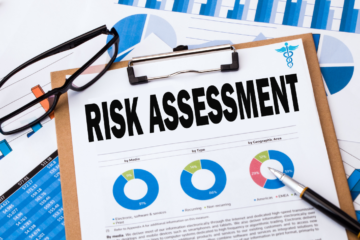Hey there, let’s talk about Data Protection Impact Assessments (DPIAs) in the Middle East and the challenges they pose in the era of Artificial Intelligence (AI).
AI is revolutionizing how organizations handle personal data in the Middle East. With the increasing integration of AI into operations, from customer profiling to automated decision-making, it’s crucial to revisit DPIAs. Why? Well, many regional data privacy laws now mandate a strong focus on AI in DPIAs.
If your last DPIA was done a couple of years ago, it’s probably outdated. The emergence of AI brings new risks like bias, fairness, transparency, and ethical concerns. To stay compliant and steer clear of regulatory trouble, businesses need to reassess their DPIAs with a sharp focus on AI.
Why is AI demanding a fresh approach to DPIAs?
Middle Eastern data protection laws, including the UAE’s Personal Data Protection Law (PDPL), Saudi Arabia’s Personal Data Protection Law (PDPL), Qatar’s Personal Data Privacy Protection Law (PDPPL), and Bahrain’s PDPL, stress the importance of evaluating AI’s impact on data processing. AI introduces risks that traditional DPIAs may have overlooked.
First up, let’s tackle AI Bias and Fairness Risks.
AI learns from data, which can lead to bias. If the training data lacks diversity, AI decisions may discriminate against certain groups. For instance, AI-powered recruitment tools might favor specific nationalities due to biased historical hiring data. Companies need to test AI models for bias and take corrective actions to ensure fairness.
Next, let’s delve into Transparency and Explainability.
Many AI systems operate as “black boxes,” making it tough to explain decision-making processes. Middle Eastern regulations stress individuals’ right to understand how their data is utilized. A fresh DPIA should evaluate if AI decision-making can be clarified in a simple, non-technical manner.
Moving on to Notice and Access Rights.
Individuals must be informed about how AI processes their data. When AI is employed for profiling or automated decision-making, companies must offer clear and accessible notices to users. DPIAs should assess if AI-driven processes respect data subjects’ rights, including access and correction rights.
Lastly, let’s address Ethical Considerations and Accountability.
AI processing raises ethical concerns, especially in surveillance, credit scoring, or automated legal decisions. Companies need to document accountability measures, including human oversight of AI-driven processes. This ensures compliance with local laws and nurtures trust with customers.
AI and DPIA Requirements as per Middle Eastern Data Protection Laws
Let’s start with Qatar’s Personal Data Privacy Protection Law (PDPPL).
Qatar’s PDPPL is applicable to companies handling personal data in the country. The law emphasizes transparency, accountability, and individual rights, all crucial aspects when AI is in play. Key factors to consider include:
- Fairness & Non-Discrimination – AI-driven decisions shouldn’t lead to unfair discrimination.
- Automated Decision-Making & Profiling – Users should be informed if AI is making significant decisions about them.
- Right to Object – Users can object to AI-based profiling, especially in marketing and financial decisions.
- Security & Oversight – Companies need to ensure robust security and human oversight of AI models.
Failure to align DPIAs with these requirements might result in regulatory action under Qatar’s data protection framework.
Now, let’s focus on the United Arab Emirates Personal Data Protection Law (PDPL).
The UAE PDPL lays down clear obligations for AI-driven data processing. Organizations must take AI risks seriously, particularly in automated decision-making. DPIAs under UAE law should cover:
- Legitimate Use of AI – AI should process data lawfully, fairly, and transparently.
- Automated Decision-Making & Profiling – If AI makes automated decisions impacting individuals, companies must offer an opt-out option or human review.
- Privacy Notices – Businesses must disclose when AI is used for profiling or decision-making.
- Bias and Accuracy – AI systems should undergo regular testing to prevent discriminatory outcomes.
The UAE’s Data Office, tasked with enforcement, can levy fines for non-compliance. Businesses must update their DPIAs to align with these AI-specific obligations.
Lastly, let’s look at Saudi Arabia’s Personal Data Protection Law (PDPL).
Saudi Arabia’s PDPL, enforced by the Saudi Data & Artificial Intelligence Authority (SDAIA), imposes stringent rules on AI-driven processing. Key DPIA requirements related to AI include:
- Explicit Consent for Automated Processing – AI-based profiling often necessitates clear and informed user consent.
- Transparency & Explainability – Detailed explanations of AI decision-making must be provided by companies.
- Fairness & Non-Discrimination – AI should avoid creating biased or unfair outcomes in critical areas like financial services and recruitment.
- Data Subject Rights – Individuals should have access to AI-driven decision-making logic and the right to contest automated decisions.
Saudi regulators are intensifying oversight of AI applications. Companies operating in Saudi Arabia must update their DPIAs to encompass AI compliance measures.
So, how can you reassess your DPIA to ensure AI compliance?
A systematic approach is vital when revamping your DPIA. Here are the key steps to follow:
1. Identify AI-Driven Data Processing Activities
Review where AI is utilized in your organization. Figure out which processes involve automated decision-making, profiling, or predictive analytics.
2. Assess AI-Specific Risks
Evaluate potential bias, fairness, transparency, and ethical risks. Consider how AI models are trained, tested, and monitored to mitigate risks.
3. Review Legal and Regulatory Requirements
Compare your AI applications with Middle Eastern data privacy laws. Identify mandates related to automated decision-making, data subject rights, and risk mitigation.
4. Strengthen Governance and Accountability
Ensure your organization has specific AI governance policies. Assign clear responsibilities for monitoring AI risks and ensuring compliance.
5. Update Privacy Notices and User Access Mechanisms
Revise privacy policies to transparently reveal AI usage. Ensure users can exercise their right to access, correct, or object to AI-driven decisions.
6. Implement Continuous Monitoring and Audits
AI models evolve over time. Regularly audit their performance to detect bias and ensure regulatory compliance. Document monitoring efforts in the DPIA report.
What happens if you neglect updating your DPIA?
Failing to adhere to AI-related DPIA requirements can lead to regulatory fines, harm to reputation, and legal disputes. Authorities in the Middle East, like Qatar’s Compliance and Data Protection Department (CDP), the UAE Data Office, and Saudi Arabia’s SDAIA, are fortifying AI governance frameworks. Companies that overlook reassessing AI risks may face enforcement actions, such as fines or operational constraints.
In Conclusion: Seek Expert Guidance for Compliance
Updating a DPIA to address AI complexities demands specialized knowledge. Formiti Global Privacy is a trusted authority in data protection law consultancy. With profound expertise in Middle Eastern regulations and AI governance, Formiti aids organizations in navigating compliance hurdles effectively.
As regulations around AI-driven data processing tighten, businesses must take proactive steps. Reviewing your DPIA now ensures compliance, mitigates risks, and fosters trust with customers and regulators. Collaborate with Formiti Global Privacy to stay ahead in the evolving data protection terrain.



